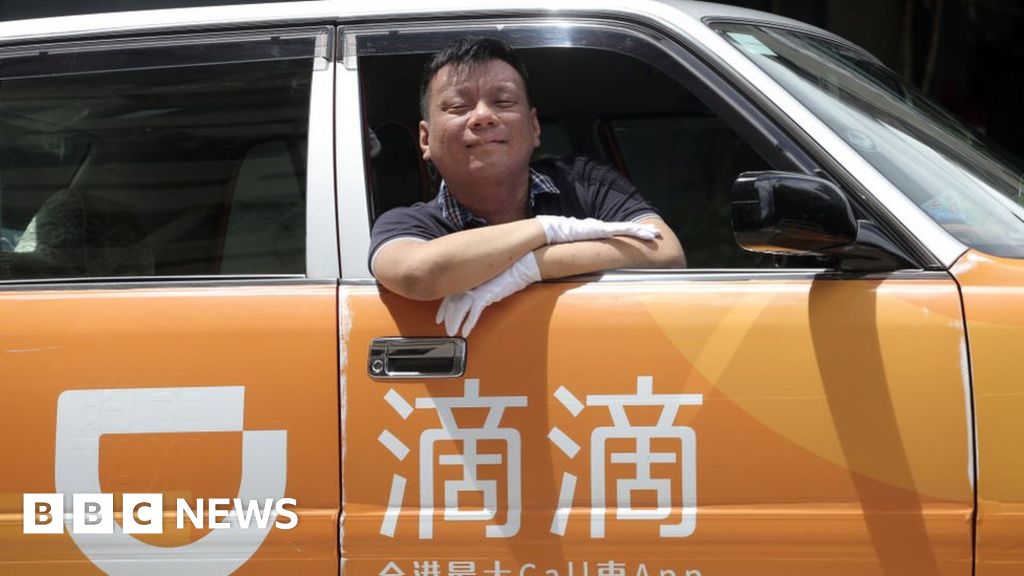image courtesy of Getty Images Didi Chuxing, China’s largest ride-hailing operator, has warned that the removal of its app from Chinese shops will have a negative impact on its sales. On Sunday, China’s internet regulator ordered app shops to stop selling Didi’s app. It claims that the company improperly obtained personal information from users. It comes only a few days after the tech behemoth began selling stock on the New York Stock Exchange. Existing users will not be affected, but new users will be unable to register on the country’s largest ride hailing site. In a statement, Didi stated, “The company will try to fix any problems, strengthen its risk prevention knowledge and technological capabilities, protect users’ privacy and data security, and continue to deliver secure and convenient services to its consumers.” “After inspections and verification, the Didi Chuxing app was determined to be in serious violation of regulations in its gathering and use of personal information,” the Cyberspace Administration of China (CAC) said. The Chinese ride-hailing behemoth makes its $68 billion debut in the United States. China’s ride-hailing behemoth is the subject of a ‘competition investigation.’ China’s tech behemoths are under regulatory scrutiny. Didi’s stock dropped 5.3 percent after the CAC announced it was investigating the company to defend “national security and the public interest.” Every day, Didi collects massive volumes of real-time data. It makes use of some of the information for autonomous driving and traffic analysis. Last week, China’s counterpart to Uber debuted on the New York Stock Exchange, with a market capitalization of about $74.5 billion (£53.9 billion) at the close of Friday’s trading. The company raised $4.4 billion in its first public offering (IPO), making it the largest Chinese company to list in the United States since Alibaba’s debut in 2014. Asia Presenter Karishma Vaswani When I chatted with Cheng Wei, the founder of Didi Chuxing, in 2018, it was clear that he was a guy on a mission. He intended to take the Chinese company global and present a new picture of what a data-driven organization could do. “We were born in China,” he informed me during an interview for the BBC series Asia’s Tech Titans in his Beijing offices. “However, we aspire to be a global corporation. We aspire to be able to tackle the world’s traffic and transportation challenges.” Cheng Wei’s tremendous ambition was embodied in Didi’s much-anticipated US IPO last week, which he showed me on the rooftop of his sprawling Beijing campus. However, the situation in China today is significantly different from when I first spoke with Didi’s founder a few years ago. Chinese tech enterprises are increasingly being scrutinized more closely both inside and outside of China. And Didi’s woes come amid a broader assault on Chinese tech by regulators in the country, a crackdown that some analysts believe is politically motivated as Beijing tries to tighten its grip on the fast-growing sector. What this means for Didi and other Chinese IT companies is that this is only the beginning of their problems. Investors will have more doubts about the regulatory future for firms intending to list in the United States, which might indicate a difficult and unpredictable time ahead. On average, Didi Chuxing, a platform comparable to Uber or Lyft, arranges around 20 million rides per day in China. It was founded in 2012 and is especially popular in China’s congested cities. However, it has expanded into 15 additional areas in addition to China. The company recorded revenue of around 42.2 billion yuan ($6.52 billion) for the three months ending in March in June, with the majority of that coming from its China mobility division. China has recently taken steps to strengthen oversight of the country’s major technology companies. The inquiry comes after regulatory crackdowns on other tech companies, including Alibaba and Meituan, a Chinese food delivery business. The CAC also announced on Monday that it intends to investigate Full Truck Alliance, a Chinese truck-hailing company (FTA). FTA, like Didi, recently debuted on the New York Stock Exchange, garnering $1.6 billion. At the end of Friday’s trading, it had a market capitalization of more than $20 billion. The gig economy is a type of economy in which people work China/n
Read MoreDidi says removal of app in China will affect business
2021-07-05T03:28:39-04:00July 5th, 2021|





